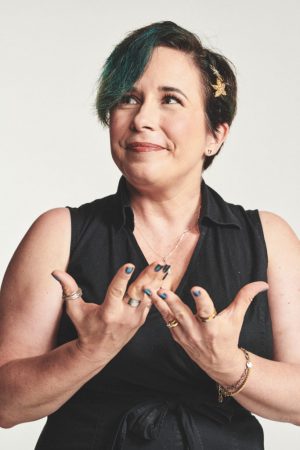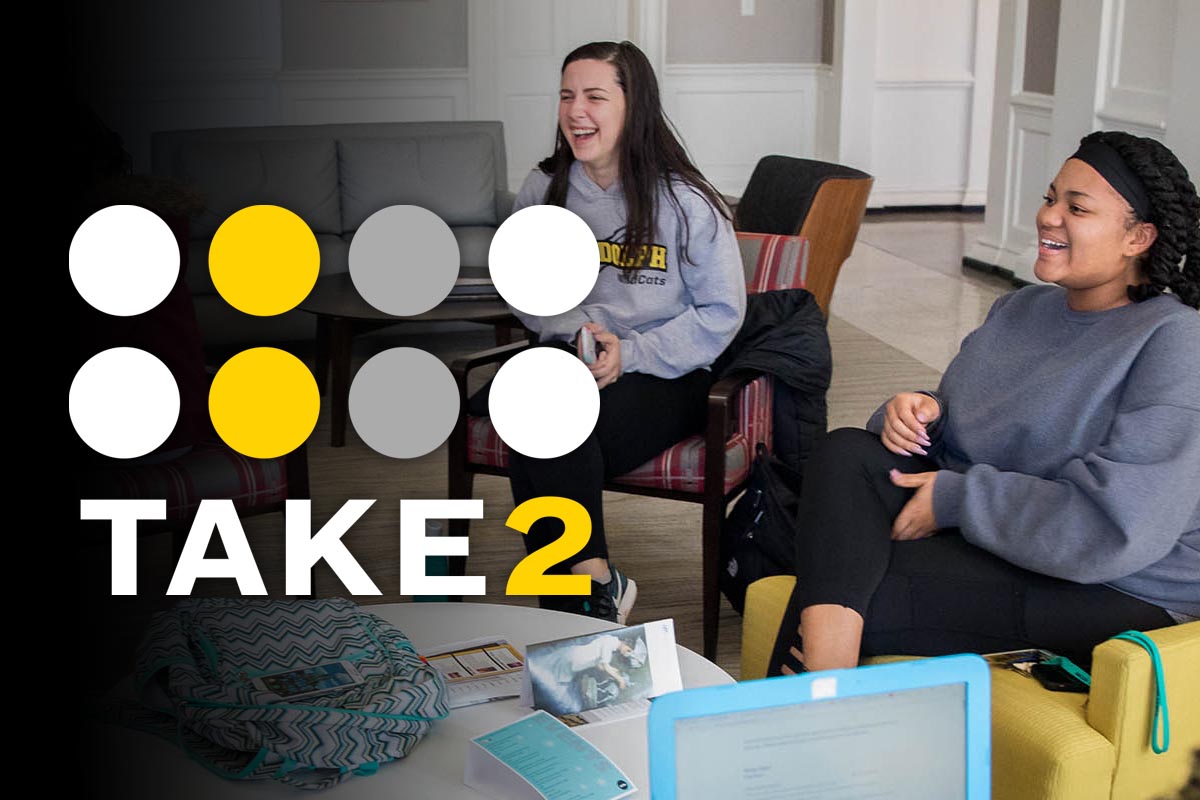Pearl S. Buck Writer in Residence taking Randolph students into the future

Fran Wilde
Photo by Bryan Derballa
In 2019, science fiction and fantasy author Fran Wilde did a bit of what’s called futurecasting in a piece she wrote for The New York Times.
In Please Stop Printing Unicorns, Randolph’s 2020 Pearl S. Buck Writer in Residence posited a future where we all have access to bioprinters, or 3-D organic bioprinting machines, that create living things—people, pets, and, yes, unicorns.
It was part of the newspaper’s Op-Eds From the Future series, which asks science fiction authors, futurists, philosophers, and scientists to write what they imagine we might read “10, 20, or even 100 years from now,” according to the Times. “The challenges they depict are imaginary—for now—but their arguments illuminate urgent questions of today and prepare us for tomorrow.”
Those types of questions will be central to Wilde’s remote residency, which begins next week. She’ll be leading a five-week workshop with students, dubbed Writing the Impossible, that focuses on speculative fiction. Similar to futurecasting, the genre speculates about worlds unlike our own and often overlaps with science fiction, fantasy, post-apocalyptic fiction, and alternate history.
“We’re using the lens of science fiction, fantasy, and speculative essays to examine our current state and where we can go from here,” said Wilde, whose novels and short stories have been finalists for six Nebula Awards, a World Fantasy Award, three Hugo Awards, and a Lodestar.
“The course focuses on encouraging students to create a lifelong writing practice, and how engagement with both the imagination and the real world is required,” she added. “It’s also a brainstorming class and an idea generation class.”
Wilde’s seminars will include lectures, Q&As, a weekly writing challenge, and extensive reading of both speculative fiction and speculative nonfiction.
“There will be lots of different types of stories, but most will have some grounding in the real world. They are all sort of feet-on-the-ground stories,” she said. “There may be one that is a little more out there than the others, but they all have an aspect of impossible realism.”
“Over and over again,” she added, “the emphasis is on imagination and using the tools of today to envision a better future for tomorrow.”
Wilde, who directs the genre fiction M.F.A. concentration at Western Colorado University, brings a unique perspective to her writing, holding both an M.F.A. in poetry and a master’s in information architecture and interaction design. She’s taught poetry and writing for all ages, as well as web development, computer programming, and game design.
“She’s someone I have wanted to bring in for a while,” said Randolph English professor Laura-Gray Street, who coordinates the residency program. “We were both poetry students together, so I knew her originally as this very smart poet. But she really has so many different talents and interests. She’s always been amazing to me in that way. And she’s just gone gangbusters in the speculative fiction world. Our students in creative writing, and I think this is sort of a general trend, are very interested in speculative writing, fantasy, and sci fi.”
Wilde was the perfect choice for the program’s first remote residency, which will include both synchronous and asynchronous components in addition to individual virtual meetings with students.
“I didn’t want to bring in somebody who didn’t know a lot about online learning and how that worked,” she said of Wilde, who began teaching online courses via email in 1997. “I had already been thinking Fran would be so perfect for this. I think the students are going to have a great experience because she’s so knowledgeable and so tech savvy. I’m planning to be in the class myself.”
Wilde will ask her students to keep paper journals—what she calls “old-timey technology to gather our ideas”—to balance all the time spent in front of screens.
“That part of the writing life is also important,” said Wilde, whose first published book of poetry featured illustrations from her own journals. “You’ve got to restock the well, but you’ve also got to branch out, try new things, and allow yourself to be messy. Part of what we’re going to talk about is how to use mess and messy journals that aren’t Instagram-ready to really start collecting ideas. Let your pen wander a little bit.”
She and Street also put together care packages for students, with copies of Wilde’s books and a handwritten letter from her, as well as notecards and postcards featuring her sketches.
“Having something that promotes community really helps unify a class,” Wilde said. “Even just the act of opening the box is something a class does together. That’s a communal experience at that point. We’re figuring out how we connect across these sort of impossible distances.”
Tags: creative writing, English, fall 2020, online learning, Pearl S. Buck Writer in Residence, virtual learning, visiting writers, Vita No. 9
